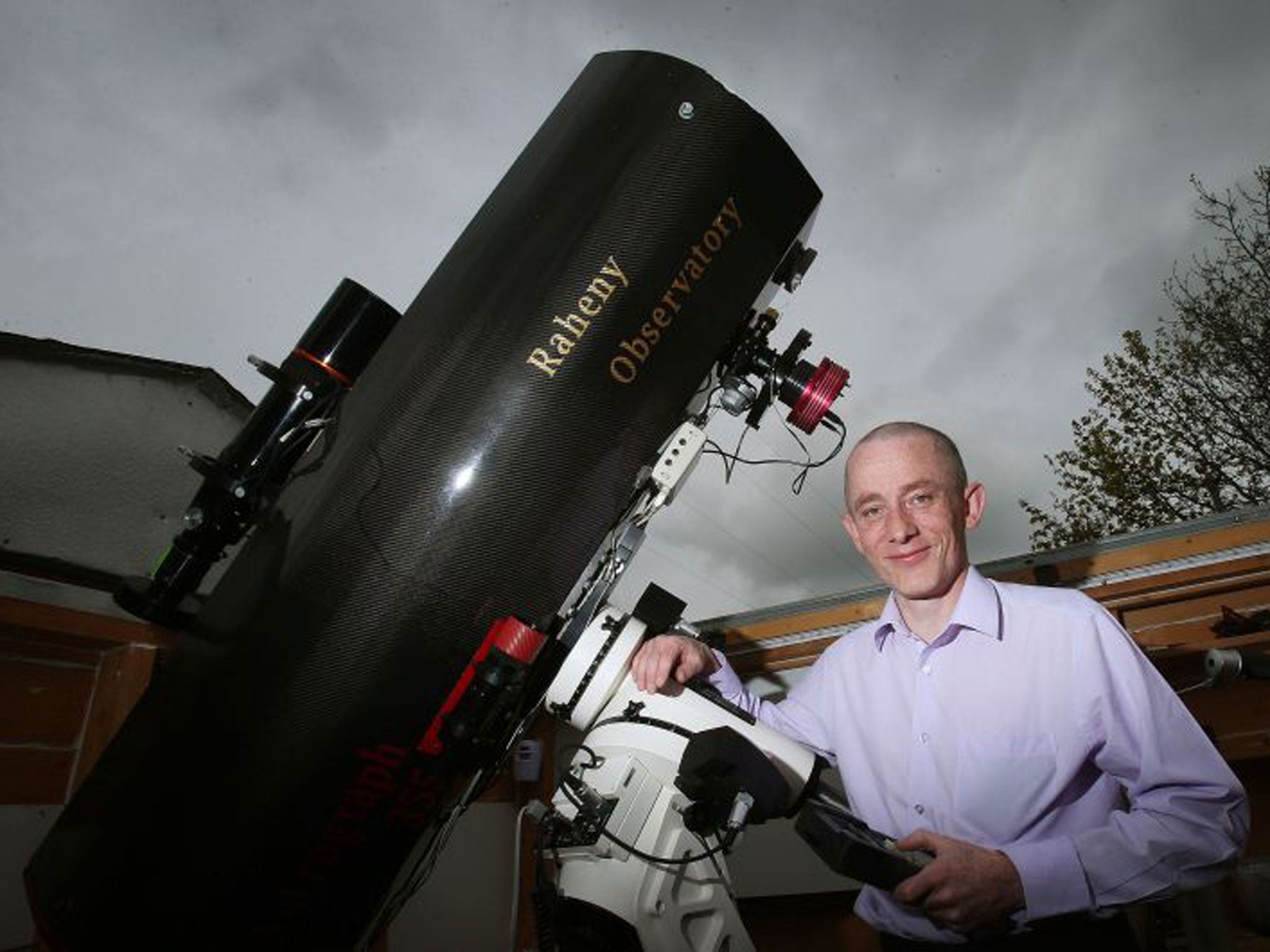
Your support helps us to tell the story
From reproductive rights to climate change to Big Tech, The Independent is on the ground when the story is developing. Whether it's investigating the financials of Elon Musk's pro-Trump PAC or producing our latest documentary, 'The A Word', which shines a light on the American women fighting for reproductive rights, we know how important it is to parse out the facts from the messaging.
At such a critical moment in US history, we need reporters on the ground. Your donation allows us to keep sending journalists to speak to both sides of the story.
The Independent is trusted by Americans across the entire political spectrum. And unlike many other quality news outlets, we choose not to lock Americans out of our reporting and analysis with paywalls. We believe quality journalism should be available to everyone, paid for by those who can afford it.
Your support makes all the difference.Stars in his eyes?
The amateur stargazer, who spends his days working with computers, has discovered yet another supernova, or exploding star. This is the third intergalactic discovery that Grennan has made from his garden shed, and it is all the more impressive given that he spotted it through a telescope he built from scratch at his home in Dublin.
In a galaxy far far away?
The explosion happened more than 170 quadrillion miles away. Rather boringly called “Supernova 2014as” – they are named after the year of discovery – it is believed to have come from a star 100 times the size of our Sun, which exploded 170 million years ago. Such explosions can briefly outshine a whole galaxy. Mr Grennan, 42, made his discovery early on Good Friday but the International Astronomical Union only confirmed the supernova’s existence at the weekend.
He must be over the Moon…
After spotting what he believed to be the supernova, Mr Grennan said, he and his wife enjoyed a “nice strong cup of tea”. Once the confirmation was confirmed, he added: “It is certainly very exciting. I don’t think it has really sunk in yet.” In 2010, Mr Grennan became the first Irishman to officially discover a supernova (he has now found three in the past four years) but said the country had a long and proud history of astronomical discoveries. “Irish monks may have noticed a supernova explosion in 1054,” he explained, “and, to this day, Irish astronomers have developed a worldwide reputation for producing leading-edge scientific research.”
So how does he do it?
The astonomer has written a specific computer program with complex algorithms and criteria to allow his telescopes to target certain galaxies at certain times, even if he is not in the shed. He then reviews hundreds of images with the naked eye. The latest discovery was found beside the constellation Ursa Major, known to you and me as the Plough or the Big Dipper.
Is it such a big deal?
“A supernova represents the dying moment of a sun just like our own, which explodes in a spectacularly violent manner,” Mr Grennan said. “They help astronomers to get a better handle on just how old our universe really is and, more importantly, what will be its final outcome. There is probably no bigger question in science.”
Join our commenting forum
Join thought-provoking conversations, follow other Independent readers and see their replies
0Comments